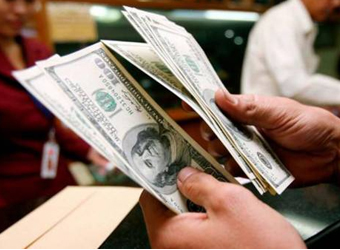The dollar prices rose against most currencies on Friday, bolstered by solid U.S. economic data that further supported consensus expectations that the Federal Reserve will raise interest rates at next week’s monetary policy meeting.
“The gains in the dollar were a positive reaction to the data,” said Omer Esiner, chief market analyst at Commonwealth Foreign Exchange in Washington. “The reports show that the dollar’s fundamental backdrop remains strong.”
U.S. industrial production surged in February, boosted by strong increases in output at factories and mines, while a consumer sentiment survey by the University of Michigan showed a rise in the overall index for March.
The dollar, however, fell to a more than one-week low against the yen, undermined by speculation that more top Trump administration officials could be replaced and concerns U.S. trade tariffs could hurt the global economy.
These U.S.-centric factors have rattled markets in recent days, pushing the dollar lower and leaving the yen as the main beneficiary.
U.S. President Donald Trump has decided to replace his national security adviser, H.R. McMaster, the Washington Post reported on Thursday. At the same time, the New York Times reported U.S. Special Counsel Robert Mueller had issued a subpoena for documents related to Trump’s businesses, including some concerning Russia. Earlier this week, the U.S. currency took a hit after Trump dismissed Secretary of State Rex Tillerson as investors grew increasingly nervous about the direction U.S. policy might now take following a series of departures by key members of staff.
“There is a whiff of risk aversion about the markets,” said Shaun Osborne, chief FX strategist at Scotiabank in Toronto.
“The reason for the caution in markets centers on the U.S. amid reports of yet more changes in senior White House personnel,” he added.
The dollar was trading 0.24 percent lower at 106.08 yen after falling as low as 105.61 yen, the lowest level since March 7.
The dollar index gained 0.10 percent at 90.23. It has been on the defensive for much of the week amid the shake-up inside Trump’s administration and as next week’s Federal Reserve policy meeting comes into focus.
The euro fell 0.17 percent to $1.2283, with little in the way to drive the single currency It has struggled to make much headway since rallying in January and faced further headwinds after the European Central Bank last week cautioned investors not to expect a paring back of monetary stimulus any time soon.
Source: Reuters
